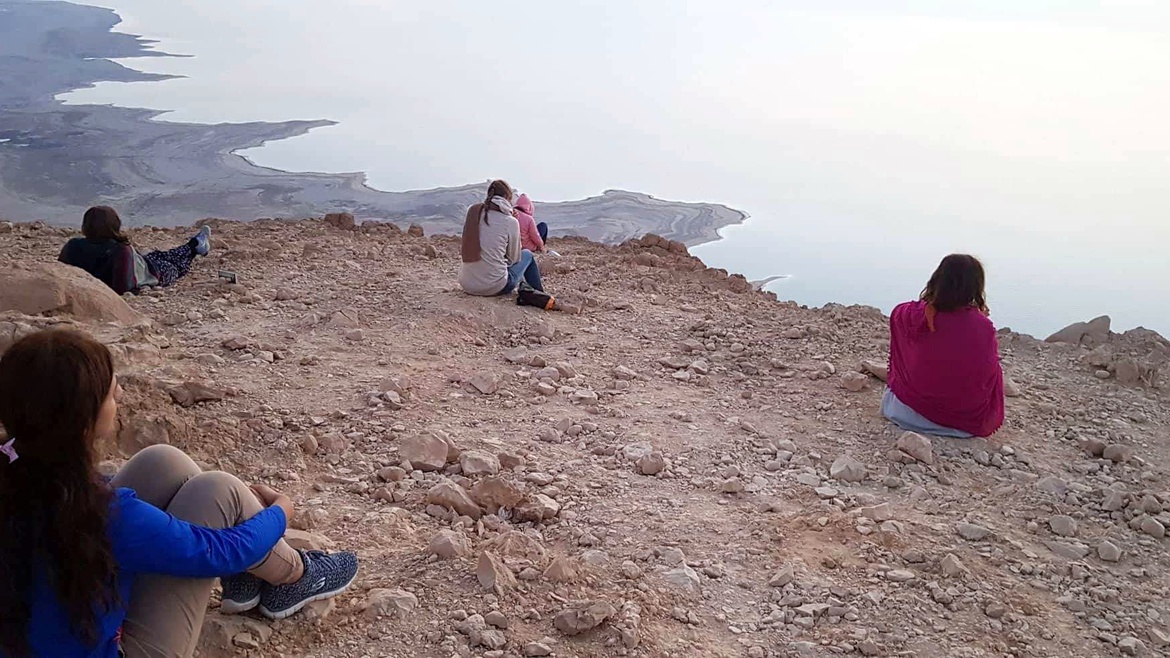An Opportunity to Engage with Life in Palestine

The past two weeks in Palestine as part of the third Zajel workcamp for 2018 have surpassed the very high expectations I had for the program. As I had read the reflections from volunteers in previous workcamps, I very much suspected that it was going to be a very good experience. I could not imagine, however, the extent of the generosity, kindness, and hospitality showed by everyone involved with Zajel program on the ground, from the local volunteers to the program coordinators. They have worked extremely hard to put together an amazing array of opportunities to not just “see” or “visit” Palestine, but to truly engage with its people, history, and landscapes.
By: Fran Bosch
Before coming to Nablus, I had read about the history of Palestine and I had some intellectual understanding of the consequences of Israeli occupation. This did not prepare me for its reality: the checkpoints that scar the landscape, the divided streets of Hebron, the meetings with Palestinian farmers, refugees, and activists who spoke about violence, dispossession, and discrimination.
Zajel Program provides you with ample opportunities to engage with life in Palestine beyond the occupation, from attending a wedding to visiting the fields of Jenin district, crossed by the thousands of birds that undertake yearly migrations from North Africa to Europe and back. And yet, you find yourself noticing how each aspect of life in Palestine is marked by the occupation. For instance, the wind mills installed by Israel in Jenin have a large ecological impact, as they stand on the birds’ migratory path, killing many in their migration.

Nablus, Jericho, Jenin, Ramallah, Jerusalem, Bethlehem, Hebron. All of these cities we visited will stay with me. It is, however, the desert that has impressed me more deeply, at least at the time of writing these words. Our night with the Bedouins was began with a gorgeous sunset and ended with an even more gorgeous sunrise over the Dead Sea, as we sat on top of the very last mountain of the desert, which slopes down to meet the sea. In between the sunset and the sunrise there was darkness, stars, silence, and a sense of retreat from the cruelty of occupation in the cities, the towns, and the roads of Palestine. It was a beautiful, much-needed gap.
It has been an honour to be a part of Zajel Program for two weeks. It will be an equal honour to tell all my friends, relatives, and colleagues about Palestine and its people, so that they may understand what is happening here, and maybe even come to see it for themselves.
As for me, I hope I will have the chance to return to Palestine. May it be a more just an equal country when I do so.






